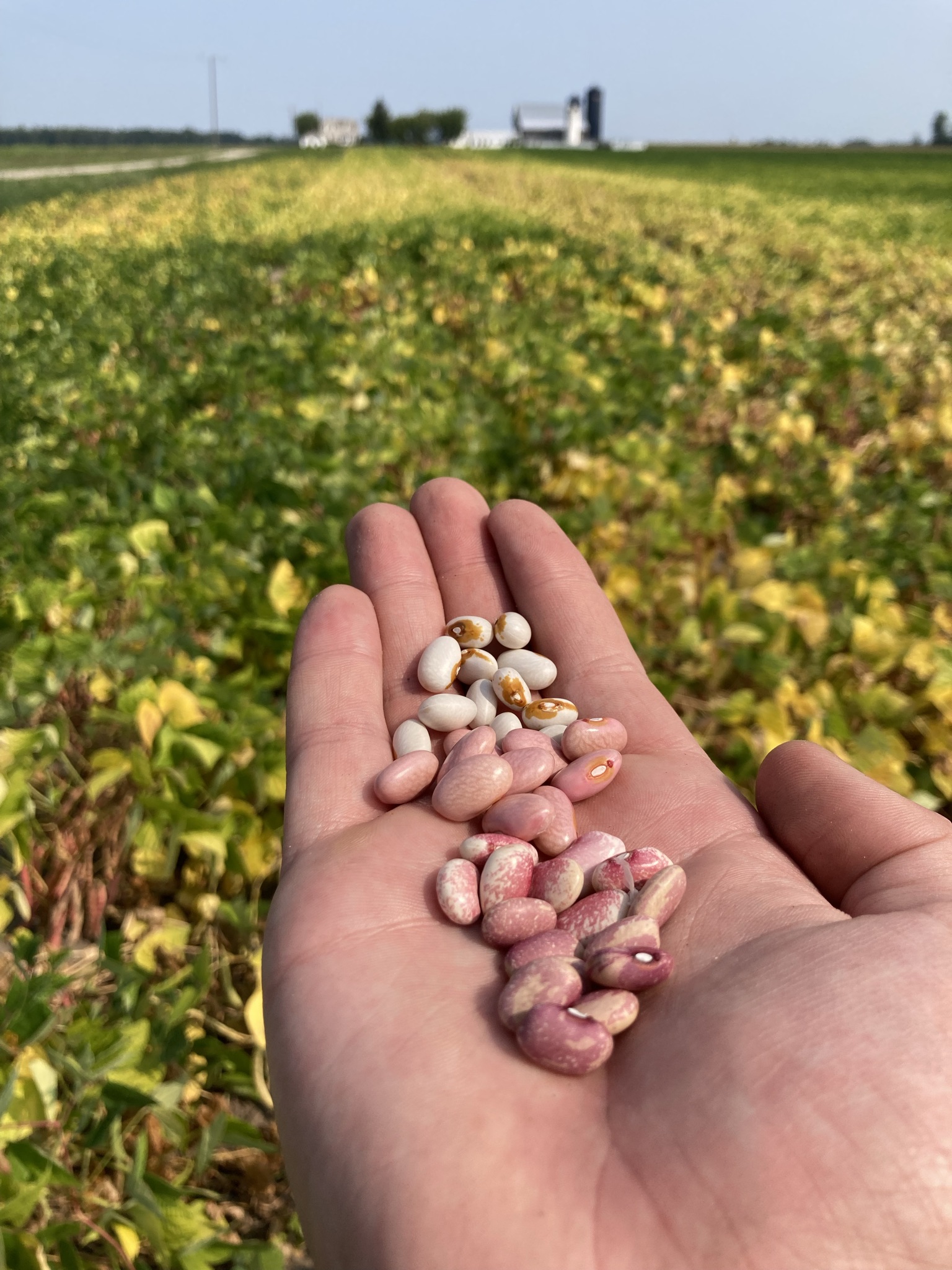Heirloom dry beans from Michigan
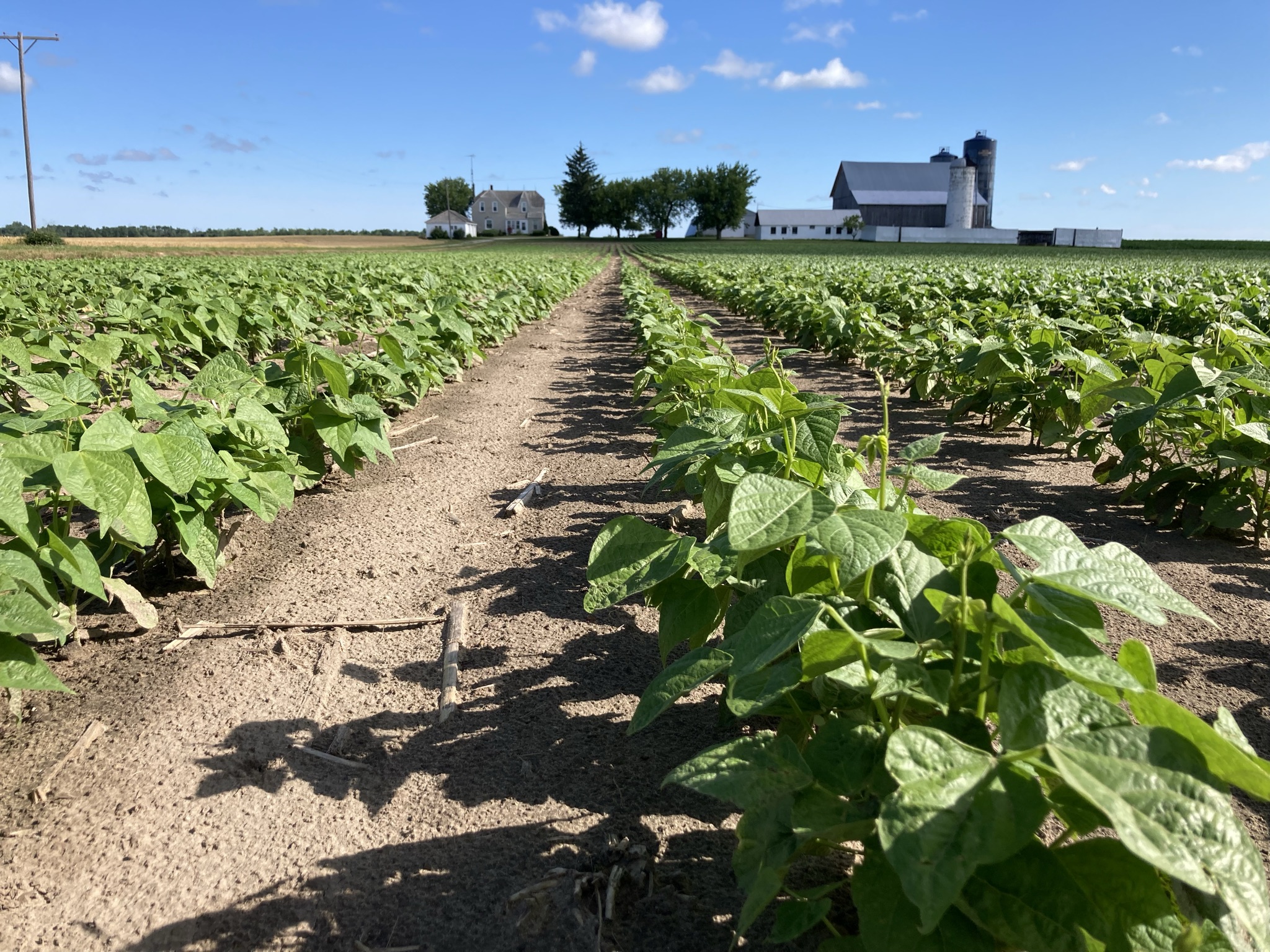

“My goal is to get people to eat a cup of beans every day,” says Kevin Messing of Sheridan Acres in Ubly, Michigan. His mission is generous, and inspired by hearing Dr. Henry Thompson from Colorado State speak passionately about the health benefits of fiber in beans.
Michiganders, and especially Michigan farmers, ought to have beans on their mind: the state is second only to North Dakota in production volume. (Though beans are nutritionally and botanically classified as legumes, similarities in the ways they are farmed puts them in the broader "grains" agricultural category. See AGC's Learn page for more grains intel!)
Kevin grew up on a rotational grazing dairy farm with 120 cows, and cash crops. At this scale, the family farm couldn’t continue to support his parents, as well as the next generation. “I didn't love cows, and my sister did,” Kevin says. So Ashley Messing-Kennedy and her husband took on responsibility for Sheridan Dairy, now milking a 240-cow herd on 600 acres. Each year, the family grows 120 acres of alfalfa, 200 acres of corn, 120 acres of small grains, and about 160 acres of dry beans. Kevin helps with the farming, and his day job allows him to pursue his own enterprise, Sheridan Acres, on 120 acres of the farm where his grandfather grew up.
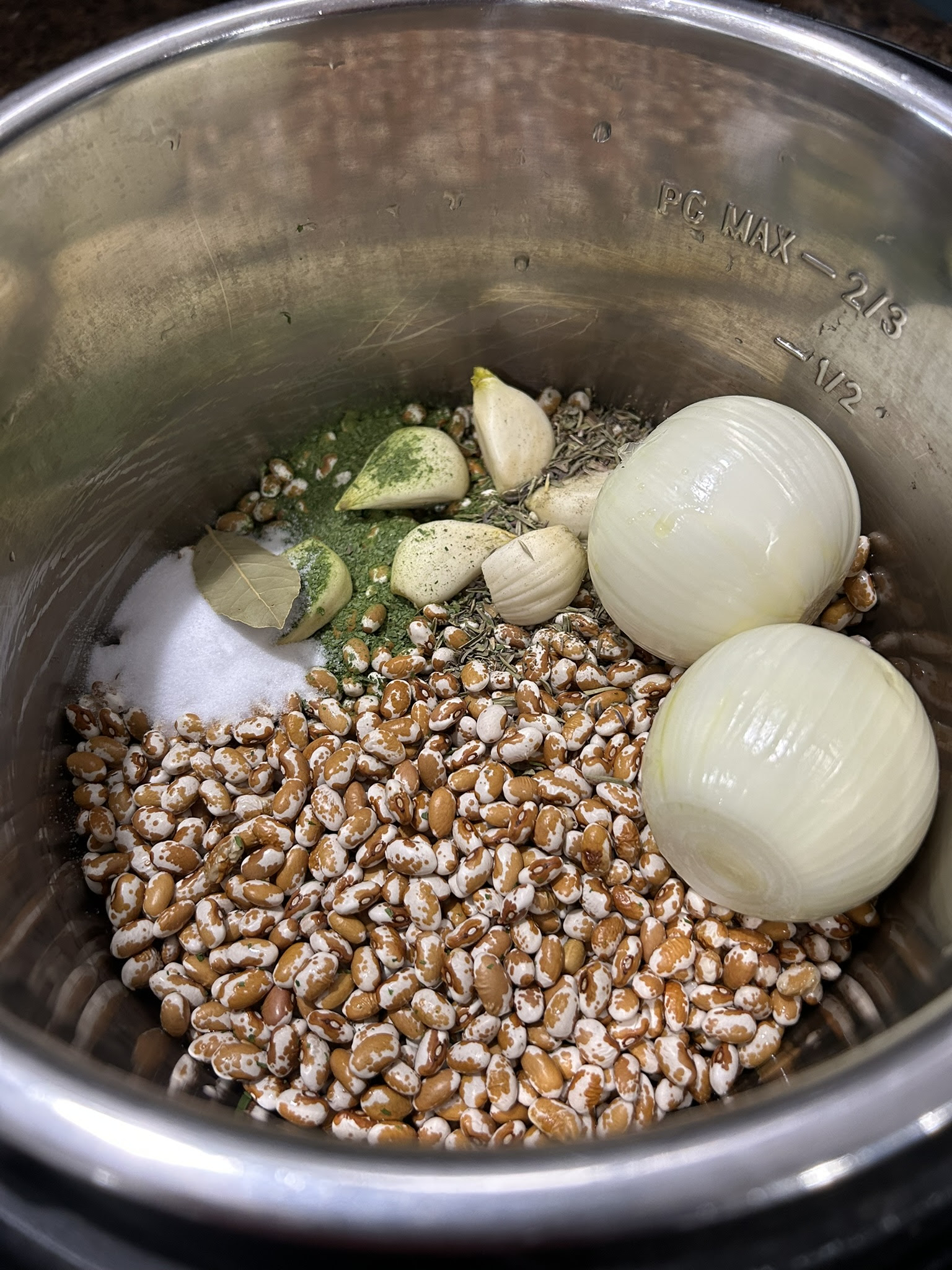
"A year ago my wife Sarah and I were able to purchase my great uncle’s farm,” Kevin says, “and one of my earliest memories of the farm is sitting on my grandpa's lap and him letting me steer the combine."
Kevin earned an engineering degree and started working for Gerber upon graduation, harvesting and purchasing fresh vegetables and produce. He now works as an agronomist and certified crop advisor at Michigan Sugar Company, a grower-owned cooperative that produces and processes sugar beets.
On their farm, Kevin and Sarah grow and direct market about 10 acres of heirloom beans, 4 acres of corn, with a goal of having a full rotation of direct-marketed food-grade grains. Their approach is completely different from the way most beans in the area are grown. Kevin explains that Michigan farmers produce a good range of dry beans, but only in expected varieties you’d see on supermarket shelves.
“While my parents couldn't bring me into the farm directly, they were always willing to help me with equipment and knowledge,” he says. He was able to use equipment they had, which made it a lot easier to get started. His parents, like many other farmers, updated to a single-pass combine for harvesting beans, but still had a machine that could cut the plants and make windrows, laying the plants down on the ground for drying. Kevin uses this along with an older combine to pick up the plants once everything’s dry, and harvest the beans.
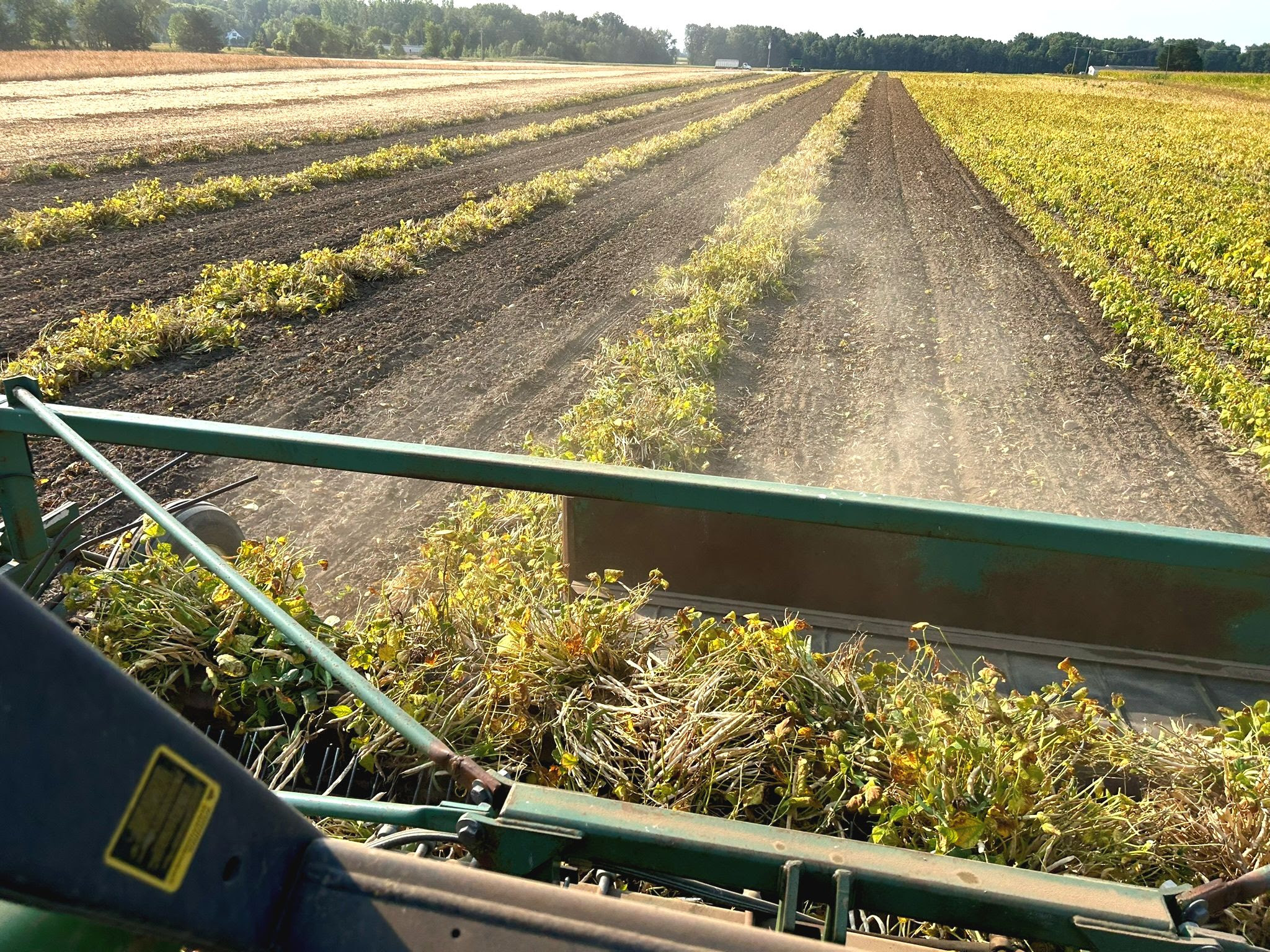
Kevin fell in love with heirloom beans on a work trip to Oregon. There, he spied Bob’s Red Mill brand Orca beans that were black and white. He knew black beans and white beans but never saw them together, and he began researching heirloom varieties. In 2014, he planted his first patch of dry beans, and did a lot of farm work by hand to get the crop. Then he sold that crop by hand, too, looking up farm-to-table restaurants in Detroit, and emailing them.
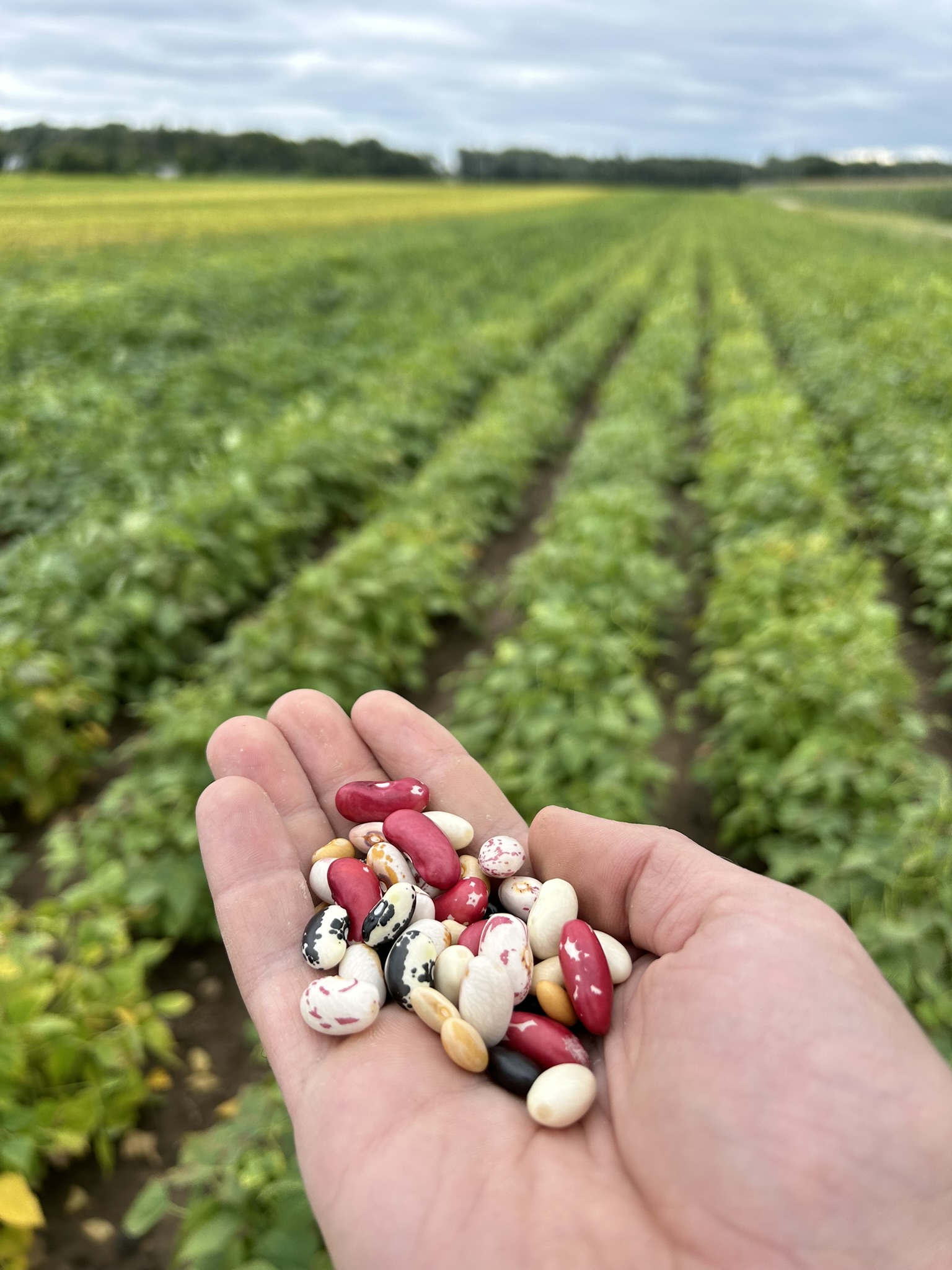
“There’s a big market garden industry in Detroit but no one was growing grains or dry beans,” says Kevin. He sold out quickly because he had a niche. Support from Detroit chefs continued and he collected equipment to suit his crops: cultivators and planters tailored for beans of various shapes and sizes, suited to the quantities he’s planting. For instance, his combine cleans out easily, which really matters. On 10 acres, he’s growing 20 different beans, some in small plots just as trials to see how the variety works for their soil and climate. Each new variety requires lots of attention, from trial plots to every harvest.
Distinction is the name of the game. Planting different types of beans means extra care from seed to selling. Kevin pays close mind to conditions throughout the season, and keeps an eye out for rain prior to harvest; rain can make the developing colors less crisp. Too little moisture can make beans split, too. “I don’t want people to have discolored beans,” Kevin says.

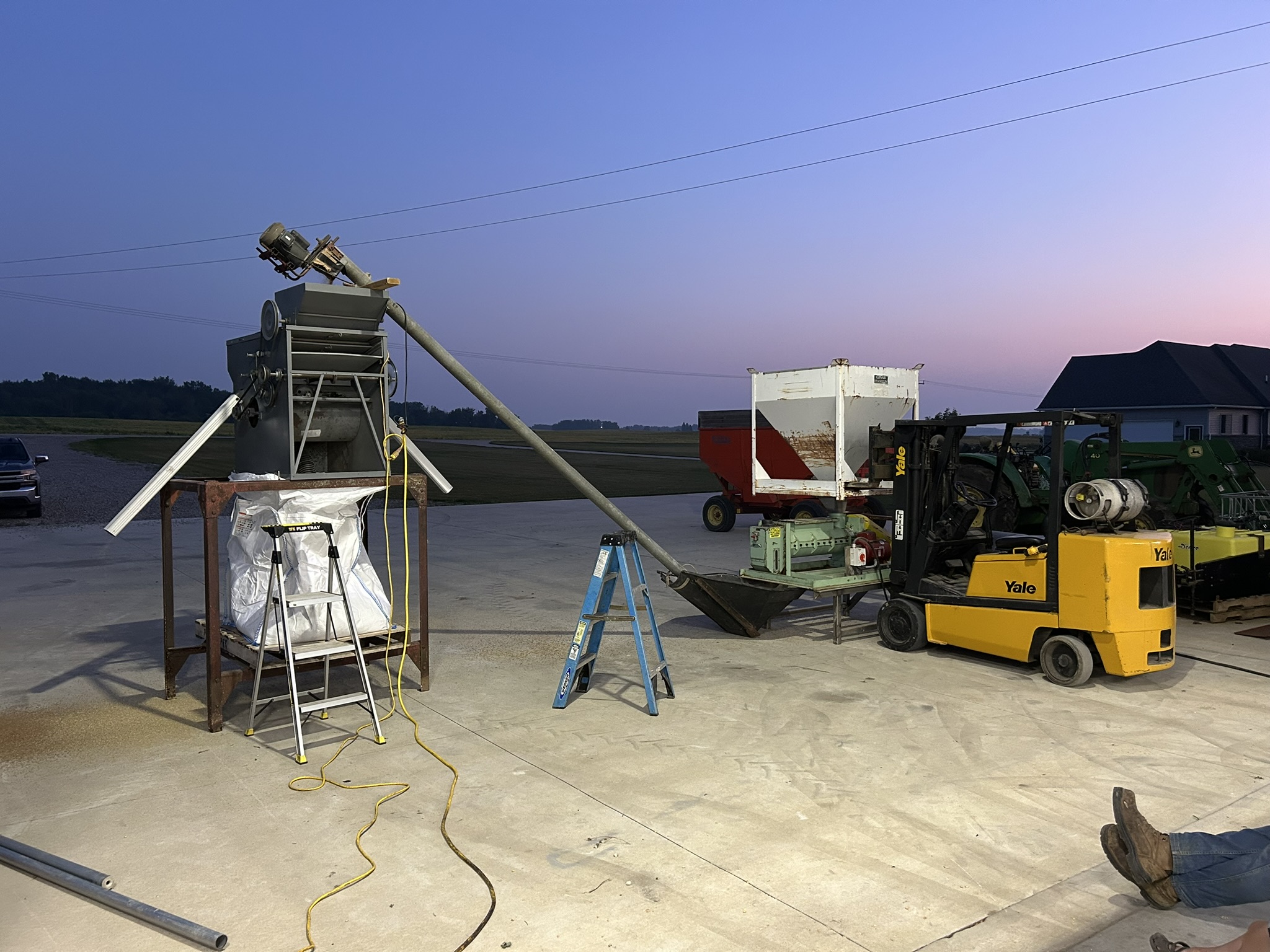
Once harvested, cleaning is of utmost importance. “Dirt and little stones and plant material are the nemesis of beans because you're disturbing the soil as you windrow the plants, and then you're picking them up off the dirt,” says Kevin. He started with a simple fanning mill to remove large pieces of undesired matter, but still had to sort out dirt and stones by hand. Gradually, they’ve accumulated the other equipment they need to improve this process—including another fanning mill, but made of metal, with brushes to clean off the screens, and a color sorter. The next big project is to kit out a space in a farm building dedicated to bean handling. Right now, they must take each piece of equipment out as needed. “The goal is to have conveyors and bucket elevators to gently move the beans or wheat from an entry point through the process and then be able to package in a tote or bag,” says Kevin.
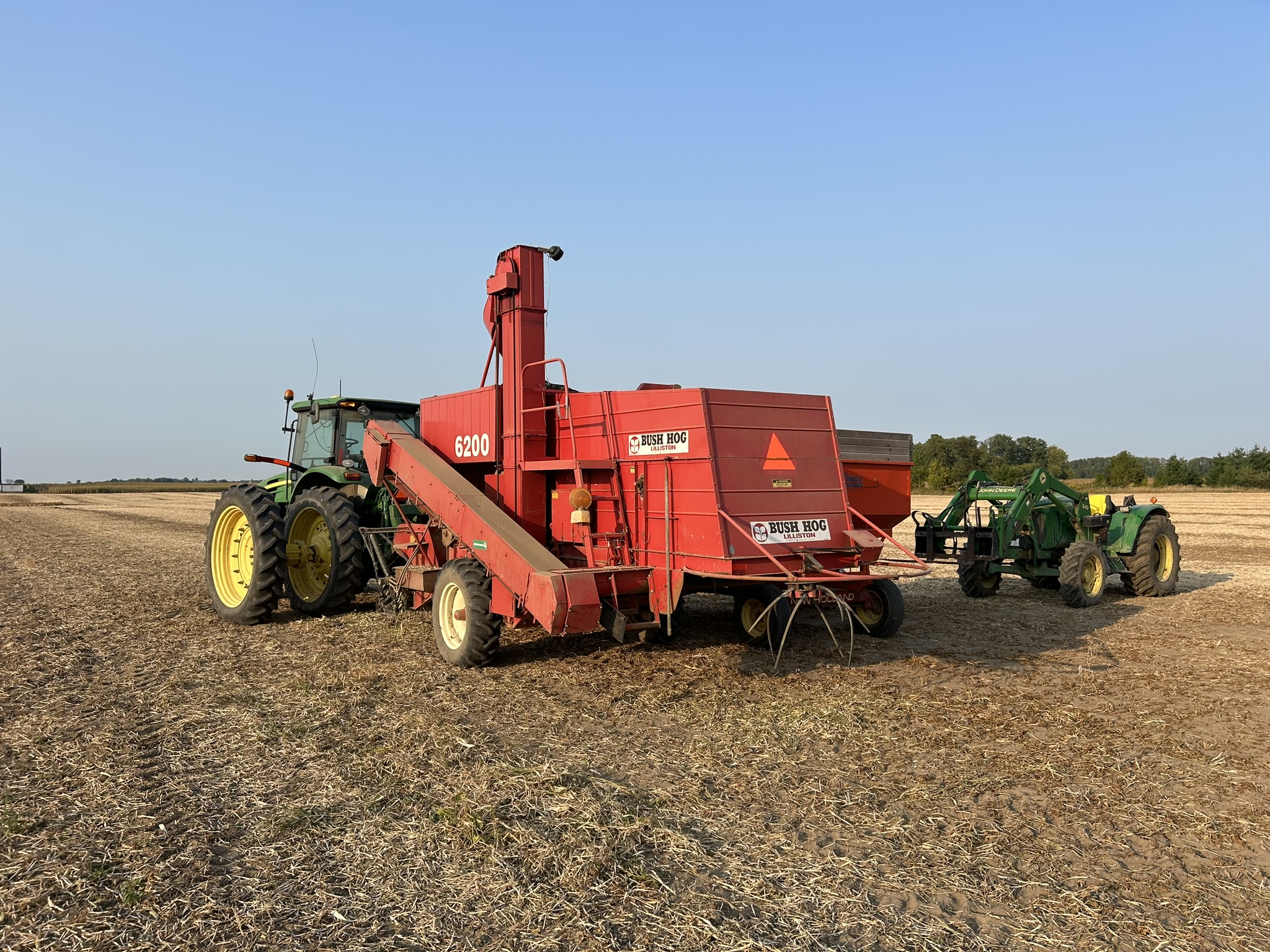
The wheat he refers to is also sold directly, like the beans. AGC member Farm Club in Traverse City uses Sheridan Acres wheat in its milling and baking program.
Kevin met AGC through Julie Doll, AGC Education & Outreach Working Group coordinator and director of Michigan Ag Advancement. The learning and networking opportunities he’s had through AGC have really been invaluable, he says, whether talking to Carl Wagner at C3 Seeds in southwest Michigan about milling and processing grains, or connecting with Granor Farm for sales or their public events. Claire Smith of Tenera Grains helped him find his color sorter, a key piece of cleaning equipment, and Perennial Pantry out of Minnesota is set to begin including his heirloom beans in their subscription boxes.
We're glad to have Sheridan Acres in our network, and look forward to seeing their efforts expand.
